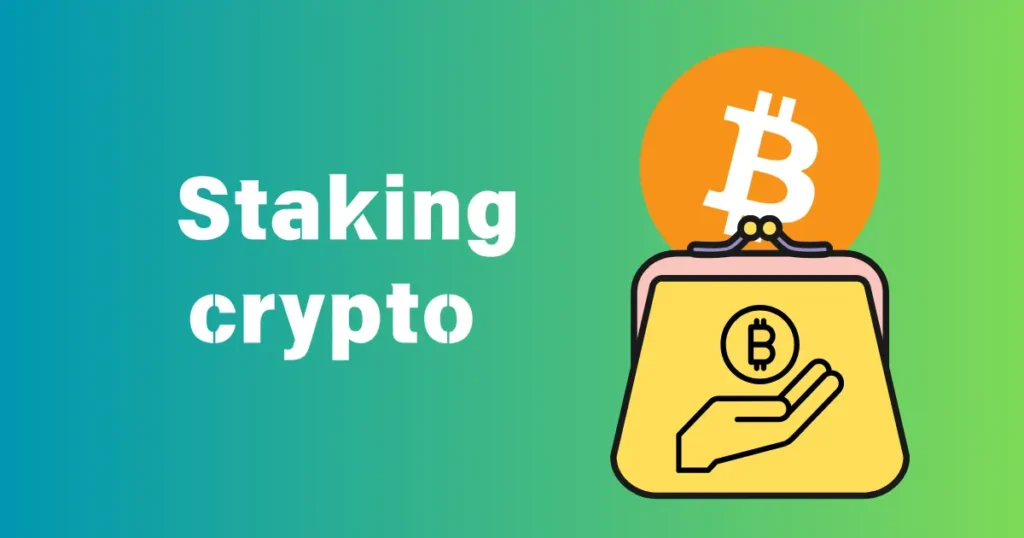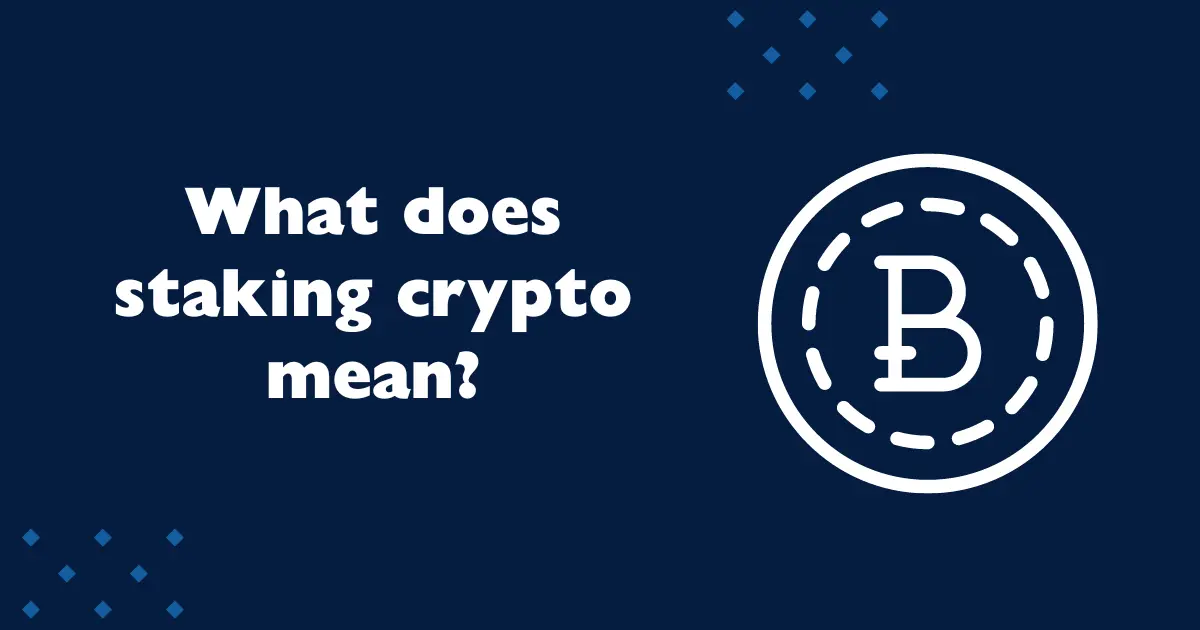If you are new to crypto, you may be thinking what does staking crypto mean? The world of cryptocurrency can be full of strange terms and concepts. One you might hear a lot about is “staking.” But what exactly does staking crypto mean? In simple terms, staking allows you to earn rewards on your cryptocurrency holdings by essentially putting them to work.
Here’s a breakdown of how it works:
Traditional vs. Proof-of-Stake Blockchains
Many traditional cryptocurrencies rely on a process called “proof-of-work” to verify transactions. This involves complex math problems that require a lot of computing power. Anyone with a powerful computer can participate in this process, but it uses a lot of energy and isn’t very efficient.
Proof-of-stake blockchains offer an alternative. Instead of solving math problems, users “stake” their crypto holdings to become validators on the network. These validators are responsible for verifying transactions and adding new blocks to the blockchain.
Staking: Contributing to the Network

So, how does staking crypto earn you rewards? When you stake your coins, you’re essentially telling the network that you have a vested interest in its success. In return for your commitment and the computing power you provide, the network rewards you with new cryptocurrency.
Thinking of Staking? Here’s What to Consider
Not all cryptocurrencies allow staking. It’s only available on those that use a proof-of-stake consensus mechanism. Some popular staking options include Ethereum, Cardano, and Polkadot.
Here are a few other things to keep in mind before staking your crypto:
- Locking Up Your Coins: When you stake, your coins are typically locked for a certain period of time. This means you won’t be able to trade them freely.
- Rewards and Risks: Staking rewards can vary depending on the cryptocurrency and the amount you stake. However, there’s always the risk that the value of your cryptocurrency could go down while it’s staked.
Staking vs. Traditional Interest Accounts
Staking can be a tempting way to earn passive income on your cryptocurrency holdings. However, it’s important to remember that it’s not without risks. Staking rewards can fluctuate, and the value of your cryptocurrency could go down. Compared to a traditional savings account, staking offers potentially higher returns, but it also comes with a higher degree of risk.
The Bottom Line
Staking crypto can be a great way to earn rewards on your digital assets, but it’s important to understand the risks involved before you get started. Do your research, choose a reputable platform, and only stake what you can afford to lock up for a certain period.
